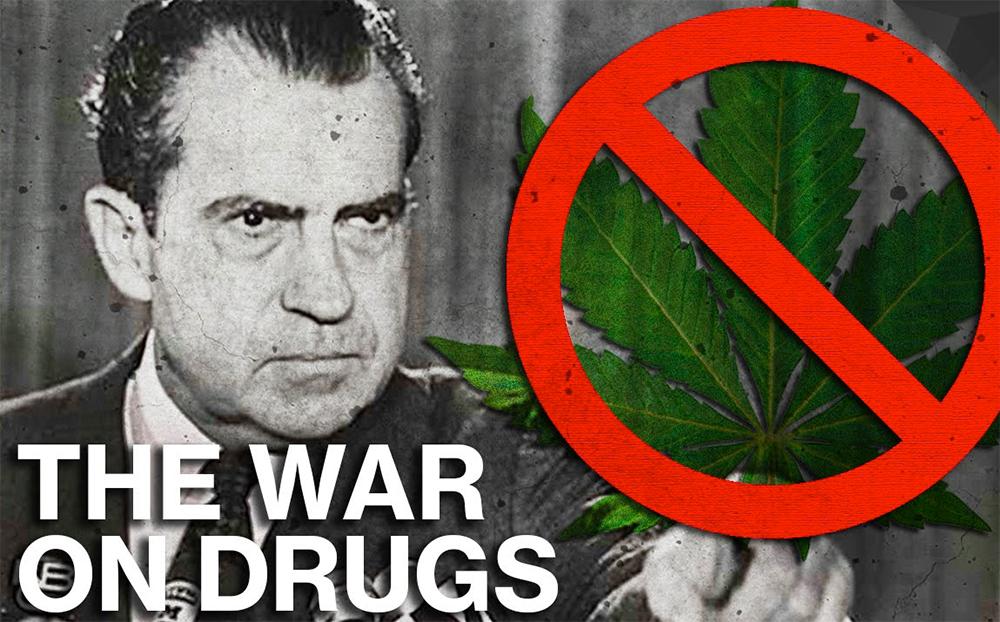
In State v. Loughbom, the WA Supreme Court held that the Prosecutor’s comments during trial advocating the “War on Drugs” amounted to Prosecutor Misconduct and deprived the defendant of a fair trial.
FACTUAL BACKGROUND
In May 2017, Mr. Loughbom was charged with three counts of various drug crimes. In October of 2017, Loughbom’s case proceeded to jury trial. During trial, the prosecutor referenced the “War on Drugs” three times:
1. During his opening statement, the prosecutor said, “The case before you today represents yet another battle in the ongoing war on drugs throughout our state and throughout our nation as a whole. I’ve been tasked with presenting the evidence against the defendant, Gregg Loughbom, of the crimes of Delivery and Conspiracy to Deliver a Controlled Substance.”
2. The prosecutor began his closing argument by stating, “The case before you represented another battle in the ongoing war on drugs throughout our state and the nation as a whole. I have been tasked with presenting the evidence against the defendant, Gregg Loughbom, of the crimes of delivery of controlled substances . . . and conspiracy to deliver a controlled substance.”
3. During the State’s rebuttal argument, the prosecutor stated that “law enforcement cannot simply pick and choose their Confidential Informants to be the golden children of our society to go through and try and complete these transactions as they go forward in the, like I said, the ongoing war on drugs in this community and across the nation.”
Although the jury found Mr. Loughbom not guilty of one drug charge, he was found guilty of delivery of methamphetamine and conspiracy to deliver a controlled substance other than marijuana. The trial court sentenced Loughbom to 40 months in prison and 12 months of community custody.
Loughbom appealed on arguments that the prosecutor’s repeated comments about the war on drugs constituted flagrant and ill intentioned misconduct.
COURT’S ANALYSIS & CONCLUSIONS
The Supreme Court began by saying We presume prosecutors act impartially “in the interest of justice.” At the same time, we expect prosecutors to “‘subdue courtroom zeal,’ not to add to it, in order to ensure the defendant receives a fair trial.” State v. Walker, 182 Wn.2d 463, 477, 341 P.3d 976 (2015) (quoting Thorgerson, 172 Wn.2d at 443). Justice can be secured only when a conviction is based on specific evidence in an individual case and not on rhetoric. We do not convict to make an example of the accused, we do not convict by appeal to a popular cause, and we do not convict by tying a prosecution to a global campaign against illegal drugs.
“We agree with Loughbom and hold that the prosecutor’s remarks about the war on drugs were improper and rise to the level of being flagrant and ill intentioned. The prosecutor’s repeated invocation of the war on drugs was a thematic narrative designed to appeal to a broader social cause that ultimately deprived Loughbom of a fair trial.” ~WA SUpreme Court
The Court also reasoned that the prosecutor’s repeated references to the war on drugs were erroneous, and that framing Loughbom’s prosecution as representative of the war on drugs violated his right to a fair trial.
With that, the WA Supreme Court reversed the Court of Appeals and remand for a new trial.
My opinion? Excellent decision. Clearly, the prosecutor’s repeated appeals to the war on drugs caused incurable prejudice. It is deeply troubling that the State employed the war on drugs as the theme of Loughbom’s prosecution and reinforced this narrative throughout his trial.
Please contact my office if you, a friend or family member face Drug Offenses or any other crime. Hiring an effective and competent defense attorney is the first and best step toward justice.


/GettyImages-171295467-59e7a773685fbe0011549f26.jpg)





